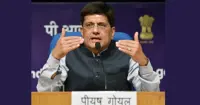1 in 5 cancer patients delay seeing their doctor
12 Jun 2014
One in five cancer patients wait more than three months before visiting a doctor about symptoms which might be serious, according to a new study by King's College London.
The study is published in the British Journal of Cancer today.
The most common reason for delaying - seen in 28 per cent of all patients - was failing to realise that their symptoms were serious. Embarrassment, or worrying about wasting the doctor's time were also factors that put people off from seeing their GP, but each of these reasons was only reported in less than 6 per cent of patients.
Patients with prostate (44 per cent) and rectal cancer (37 per cent) were most likely to delay seeing their doctor and patients with breast cancer (8 per cent) least likely.
Urinary difficulties, changes of bowel habit, and symptoms such as fatigue, weight loss and loss of appetite were all associated with delay in presentation.
Patients with symptoms of bleeding were no more likely to delay presentation than patients without bleeding symptoms, but the research revealed significant differences depending on the type of bleeding – 35 per cent of patients with rectal bleeding delayed seeing their doctor; compared to 9 per cent of patients with urinary bleeding.
The study also found that delay was much more common among patients living in the most deprived areas.
Dr Lindsay Forbes, co-director of the King's College London Early Presentation Group, says, ''This research highlights that we must do more to make sure the public recognises key symptoms of cancer like unexplained pain, unusual bleeding or weight loss, as well as a lump and make sure they get these checked out as soon as possible.
''Although a worrying number of patients across society are waiting too long to go to their doctor, it is those in the most deprived areas that are most likely to delay.''
The researchers surveyed 2,371 patients in England with 15 different cancers about the symptoms that had led to diagnosis. There was no difference in the time it took to arrange a GP appointment between men and women or young and old patients.
Sara Hiom, Cancer Research UK's director of early diagnosis, says, ''This research highlights how incredibly important it is that everyone is aware of the wide range of cancer symptoms, and has the confidence to tell their doctor. The earlier cancer is diagnosed, the higher the chance of survival and it's essential that people report any symptoms promptly to their GP. No one should be waiting three months before booking an appointment.
''It's important that we continue investing in our work with both the National Health Service and Public Health England on the Be Clear on Cancer campaigns which are successfully raising awareness of these cancer symptoms and encouraging people to see their doctors.''
The study was funded by the Policy Research Unit in Cancer Awareness, Screening and Early Diagnosis, the National Cancer Action Team/Department of Health, and Cancer Research UK.



.webp)



























